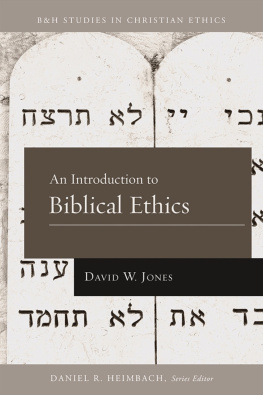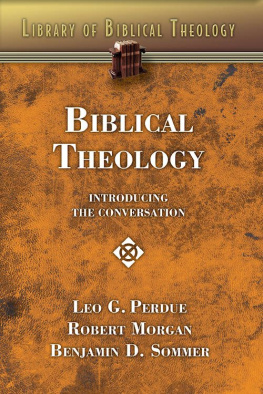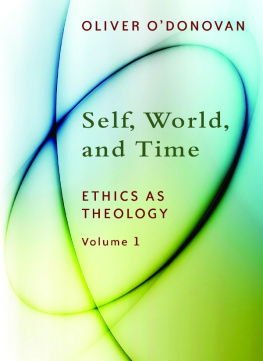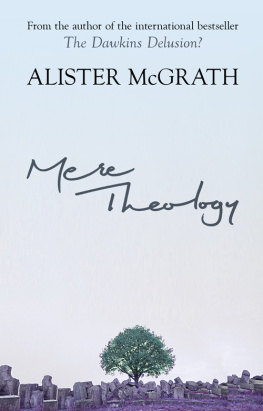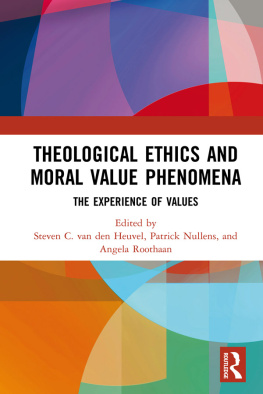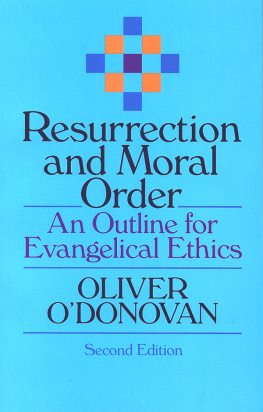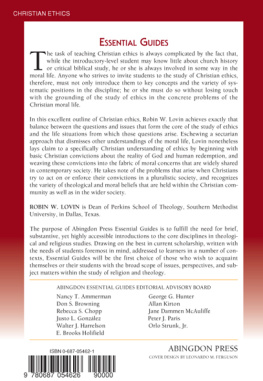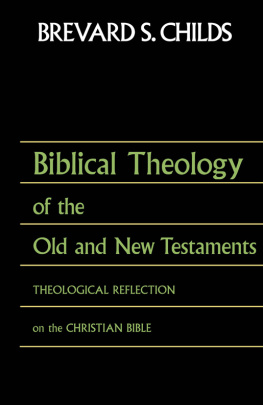Self, World, and Time
Ethics as Theology 1
An Induction
Finding and Seeking
Ethics as Theology 2
Forthcoming:
Entering into Rest
Ethics as Theology 3
Finding and Seeking
Ethics as Theology 2
Oliver ODonovan
William B. Eerdmans Publishing Company
Grand Rapids, Michigan / Cambridge, U.K.
2014 Oliver ODonovan
All rights reserved
Published 2014 by
Wm. B. Eerdmans Publishing Co.
2140 Oak Industrial Drive N.E., Grand Rapids, Michigan 49505 /
P.O. Box 163, Cambridge CB3 9PU U.K.
Printed in the United States of America
Library of Congress Cataloging-in-Publication Data
ODonovan, Oliver.
Finding and seeking / Oliver ODonovan.
pages cm. (Ethics as theology; 2)
ISBN 978-0-8028-7187-9 (pbk.: alk. paper)
eISBN 978-1-4674-4223-7 (ePub)
eISBN 978-1-4674-4189-6 (Kindle)
1. Christian ethics. 2. Self-knowledge, Theory of.
3. God. I. Title.
BJ1251.O3634 2014
241 dc23
2014025022
www.eerdmans.com
Contents
Preface
1. Spirit and Self
Ethics in the Spirit
The Giver of Life
Naming God
The Flesh
Sin against the Self
2. Faith and Purpose
The Root of Action
Command and Obedience
Self-offering
Self-consistency
Doubt of Purpose
3. Faith and Meaning
Know Thyself!
The Objectified Self
I and We
Mankind
Doubt of Meaning
4. The Good of Man
Self-communicating Good
Love of the World
The Order of Love
Sin against the World
Virtue
Prejudice
5. Wisdom and Time
The Call of Wisdom
Seeking
Ideology
World and Time
6. Love and Testimony
The Analogy of Love
The Testimony
Receiving the Testimony
Confession
The Moral Confession
7. Hope and Anticipation
The Future of Today
Three Prospects
Critique of Anticipation
Hope and Anticipation
Endurance and Temptation
Sin against Time
8. Deliberation
Purpose and Deliberation
Against Deliberation
Prudence
The Ordering of Law
Consequentialism
The Particular
Circumstances and Consequences
Ideals and Compromises
9. Discernment
Indeterminacy
The Path
Vocation
Historicism
Prospective Postscript
Index of Subjects and Persons
Index of Scripture Quotations
Preface
In Self, World, and Time, the first part of Ethics as Theology, we described Christian Ethics, alias Moral Theology, as an intellectual discipline: distinct from moral thinking on the one hand and from moral teaching on the other, it offers to each of them an ordered reflection on their assumptions and procedures in the light of the Christian gospel. We came finally to focus on a conceptual trajectory which would encompass the logic of moral thought within the three virtues of faith, love, and hope (the sequence in which the three most usually occur in the New Testament). This now gives rise to two further tasks. One lies before us in this second part: to follow moral thought from self-awareness to decision through the sequence of virtues from faith to hope. The second, guided by the claim made for the sovereignty of love, is to explore ends-of-action, penultimate and ultimate, the objects, natural and supernatural, that we may anticipate and pursue.
Today, if you shall hear his voice, harden not your hearts... (Ps. 95:7). Today is the day of some agent, some I or we who find ourselves addressed in that you; more precisely, this I or we ourselves, as we take up the question of what to do as our own question. Another agents day is not today, but then. We do not deliberate about it. We deliberate about the today on which it is given to you, or me, or us, to live and act. But there can be no framing this today it remains no more than a pleasing philosophical abstraction unless the you, I, or we in question have come to know ourselves as agents summoned by God to answer him in action, and in that knowledge have addressed the question of what we are to do as the supremely important question. And there can be no framing this today except as a moment within world-time. The subjective here and now of action has to be correlated to the objective there and then that can be seen and spoken of all around us. The today we face presupposes our agency and presupposes the world with its time. Ethics, in helping us face it, must point us to the knowledge of self and world that is actually given us, a knowledge through which the Spirit of God leads us to the action and life that are offered to us.
To the expressions of gratitude in the Preface of Self, World, and Time, most of which are relevant also to this volume, I must add thanks to the editors of The American Journal of Jurisprudence, in which parts of chapter 9 appeared, and of The Journal of Law, Philosophy and Culture, which hosted parts of chapter 8. A section of chapter 6 first appeared on http://www.fulcrum-anglican.org.uk , and, translated into German, in Wie kommt die Bibel in die Ethik? ed. Marco Hofheinz, Frank Mathwig, Matthias Zeindler (Theologischer Verlag Zrich, 2011), 229-42.
Those who find themselves perusing a volume called The Authority of the Gospel: Explorations in Moral and Political Theology in Honor of Oliver ODonovan, edited by Robert Song and Brent Waters, shortly to be published by Eerdmans, will find an unusual degree of overlap, I fear, between my essay there and some pages in this book. It was not quite what was intended, but that is how it turned out. Ignoscat lector! It is not for anything I have contributed, after all, that that book will make its appeal to the reader, but for the interpretative insight of a remarkable constellation of contributors. May the reader gain no less profit from it than I do, and make better use of it! Finally, in that context, I mention the staff of Eerdmans, of whom the conventional word of thanks says too little. In an age when publishers despair, they continue to encourage us all.
Chapter 1
Spirit and Self
Ethics in the Spirit
The Spirit comes to our aid in our weakness (Rom. 8:26). Weak in confidence, weak in understanding, weak in endurance, our sickened agency is restored, our ill-conceived undertakings are given good effect. What do we mean by weakness? Paul has described it, borrowing a telling image from the Isaianic Apocalypse, as a world that groans and labors in the pangs of childbirth (8:19-22). Striving to produce something but unable to tell what it would produce, it is wholly bent upon painful effort, a world with a historical destiny but no vision of fulfillment. The future is laid upon it as a goal to strive for, but it is opaque and beyond any clear imagination. Within this world there are some who possess the firstfruits of the Spirit (8:23), who share in the cosmic groaning of history with a certain self-awareness, knowing that their own accomplishment is bound up with a point of arrival for the material universe, the resurrection of the body. But neither the unconscious groaning of the world nor the conscious groaning of the spiritually aware achieves anything. They are formless aspirations towards an object that is neither envisaged nor realized. The salvation they look for is hidden behind the curtain of the future; it has no presence, and they can only wait.
This shortfall in agency cannot be made good from the side of its object. From an abstract future there is no clarity or energy to be drawn, no meaning sufficient to direct or command. The shortfall must be supplied from the side of the subject. And here Paul speaks, remarkably, of a third groaning, one that arises in the being of God himself. Gods Spirit groans for the fulfillment of Gods purpose, and if the Spirits groans are inexpressible, that does not mean that they are doomed, like ours, to be contentless and ill-focused. The divine purpose may be incommunicable, but the secret understanding of the future which the Father and the Spirit hold between them comes to our assistance. We do not know how we are to pray aright; yet prayer can be effective if it springs from the praying of the Spirit. Our formless aspirations, taken up and woven into Gods purposes, aim at more than we can know.
Next page

